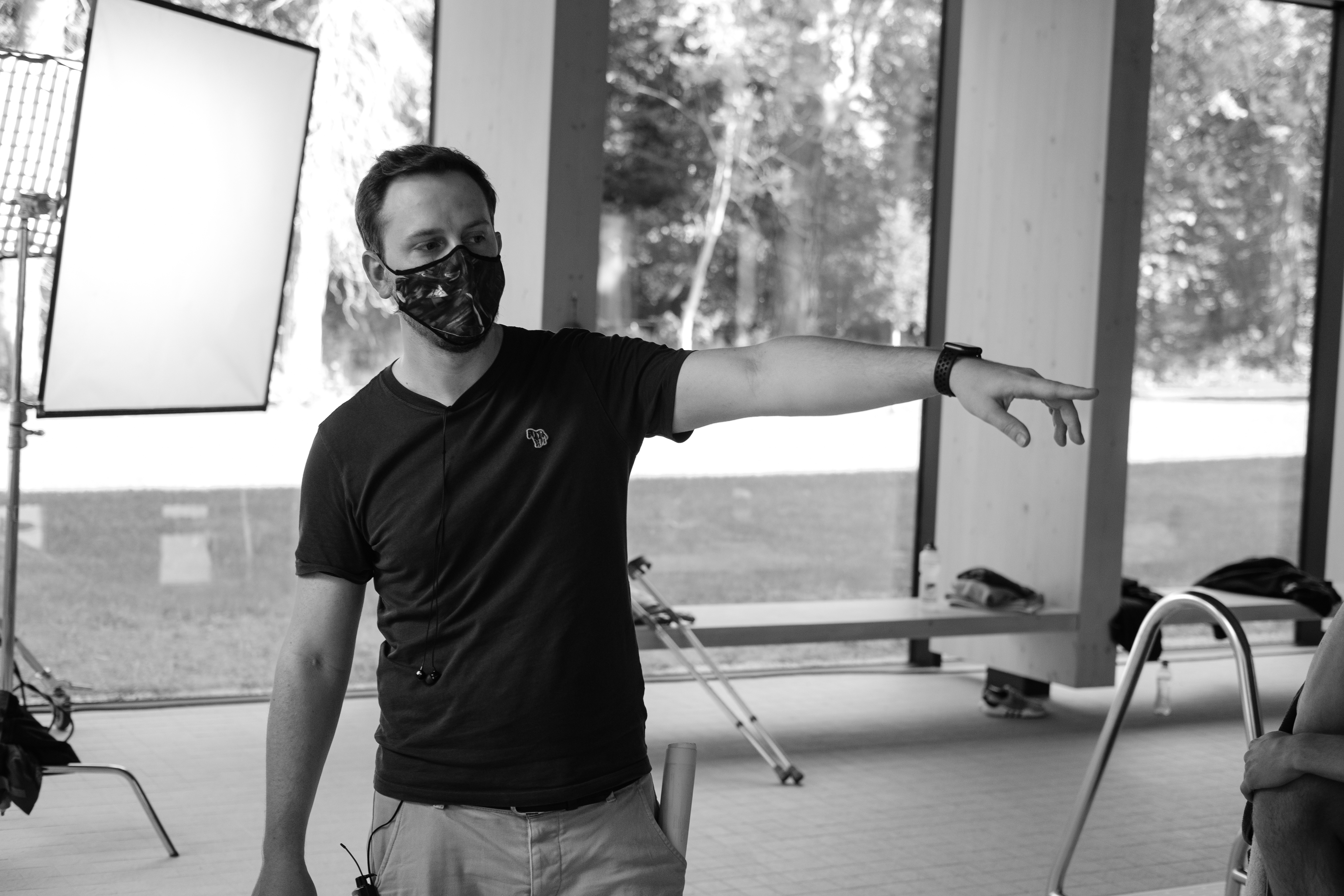ASK & DISCUSS
INDEXWould you recommend an MA in Filmmaking verses honing the skill of directing on your own?
3 years, 5 months ago - Chloe Insall-Jones
As a way of learning and getting a crew together in order to create a film, I have been thinking about doing a part-time MA in filmmaking/directing at a London Uni or film school. I would be doing so alongside my current full-time job, however I'm not convinced doing an MA would be the best use of my time and money (verses getting a crew together & learning the ropes on my own), what do you think? Would be great to hear some opinions on this from people in the industry!
Only members can post or respond to topics. LOGIN
Not a member of SP? JOIN or FIND OUT MORE
3 years, 5 months ago - Alwyne Kennedy
Could you not do both? If not, instinct tells me making your own film(s) would teach you more than doing a course. But how much do I know about courses? Nothing, that's how much.
3 years, 5 months ago - John Lubran
Whilst anything that teaches one something new is useful. It's the time cost benefit over just starting at the top equation that'll need factoring in.
Starting at the top might seem facetious to rote learners. It's a sentient consciousness thing. A subcultural thing. An opportunity thing.
Suffice to say that many successful filmmakers have had no long form training whilst many degrees obtained after years of study haven't been worth the preposterous time and cost invested. How long is a piece of string?
3 years, 5 months ago - Paddy Robinson-Griffin
Remember no paper qualification will make any difference when getting work in the industry - ability (and experience) are what count. It's pretty vocational.
I would appraise the cost of the MA and consider how many actual professionals and semi-professionals you could pay, or at the very least if you joined a film making club how many sets of expenses you could cover - you may find the money goes further.
I'm all for education of course, just it's not any kind of shortcut to working in the industry in tis case, and with or without an MA you'll start on set as a runner. Perhaps you could use some of the MA money to sustain yourself volunteering on other peoples shoots? Learn for learning's sake, but not really for career advancement's sake in a vocational industry :)
3 years, 5 months ago - Vasco de Sousa
Having done an MA, here is my take. If you are doing it full time on campus, you work with other people who share your deadlines, so you know that films will be made. You get more feedback than you would on microbudget shoots. As for writing courses, you get way more feedback from lecturers than those companies who charge for coverage. (Yes, even pound for pound, feedback wise, MAs give more.)
Some people who I went to film school with succeeded, others didn't. Rather than talent, attitude and just applying for paid work like mad was usually the deciding factor. (Unpaid work didn't help.)
Some who did succeed were paying for their studies by making films (even borrowing the university equipment to work for clients.). Not everyone started as a runner, a few were running their own businesses and there were other jobs.
The unpaid work that I did led to zero useful feedback, except when I was volunteering on student shoots. Students give pretty good feedback, sometimes. I did a few fun films for friends, some of whom later paid me. But it is easier to find paid work than unpaid anyway. Paid work and education both give feedback.
As far as cost value, you cannot pay very many union people for long on nine grand (or whatever tuition is.). And good locations? Not in the UK. A lot of film schools let you use pretty good sound stages that would be expensive to book if you are not a student.
But, that said, I guess part of my motivation to make a microbudget film for less than a years tuition was being mad at the film school (for various reasons) to prove that they were worthless. I shot it at home, got a grant to help pay the crew, crowdfunded, but in the end some of the things I learned at film school helped me complete it, so the point was not proved.
More people I know who work for S4C went to film school than BBC. For BBC, I suggest you start applying to jobs with them right now. Don't wait.
For European and even American filmmakers, many of my favorites went to film school. (Tarantino didnt go, but the editor of his first films went.). British filmmakers not so much. (Of course, film schools are newer in the UK, but there is less quality control in who teaches at one. Most universities that teach film do not know how to determine good lecturers, so they get the luck of the draw.)
Britain in general has a lot of joke universities, it isn't just film school. British degrees in many subjects are worthless because students don't really have to earn them. The students become customers, and so it dumbs down everything. If you can do an MA part time without first getting a BA, well, that just shows how little esteem the organisers have for education.
3 years, 5 months ago - Marlom Tander
What do you want your career to be AFTERWARDS?
If the route (getting a job) would value an MA and clearly like them, then an MA may be useful.
If it won't, (bloody minded individualist artist) , then the time and money you'll spend on an MA should allow you to shoot loads. And if your tastes range towards things you can do with lower end money, you can do Festival winning work that can get you funding opportunities. Find a great writers, make great films.
3 years, 5 months ago - Vasco de Sousa
Marlom, Go to a few film festivals, and see what wins. If the festival is not a joke, you will find that many of the top entries are students or recent graduates. The non-student entries tend to be pretty expensive (and they will list the grants and crowdfunders in the credits to prove it. Oh, and a lot of students get grants too, so don't assume they are not students just because they got this funding.). Some short films are funded by high-paying jobs in related fields (like advertising.)
I had a grant that paid for film school. While I sometimes felt it was a waste of time, much bigger wastes came from trying to start problems with excuse makers. Most of these time-wasters were not film grads.
The negative of film schools and festivals (and networking events and our endless comments here) are all part of the same problem: procrastination.
Many, many good people can't go to film school, and make their own way. Or they meet success so quickly, they have no time for film school. Some people have film degrees who don't deserve them. (Including some instructors.)
But I often find that those who make excuses for not going to film school will make the same excuses for not applying to real jobs, not raising finance from investors, not applying for grants, not crowdfunding, not paying collaborators, not editing the film they shot, and ultimately no amount of festival awards will fix their problem.
Film grads often end up depressed, with low self-esteem, especially in the UK. A bad film school can actually harm you, like a bad relationship or working for an abusive boss.
But a good one can produce some of the most creative editors, cinematographers and directors that the United States, France, Germany, India, and Eastern Europe have ever seen.
3 years, 5 months ago - Moritz Valero
It’s a tough question to answer and I don’t think there is a right or wrong answer depending on your reasons wanting to do an MA.
I’ve recently completed an MA in directing at a London university (they shall remain nameless).
I did it to gain new contacts, learn more about directing in an environment where mistakes don’t matter as much and I get feedback and because it was the pandemic and all work I had lined up went away - not clever to spend 20something K then but eh…
Whist I did what I said I wanted to do, I certainly wouldn’t do it again - having done the directors series at the NFTS before (a summer course) I learned more there in a shorter amount of time than in a years ma. So if you want to go to uni - go to the NFTS as they are the best uni. It’s certainly not needed to become a director if you hold yourself to a high standard and try to do any workshop and career building opportunitiy you can get your hand on, plus try to structure and work on your shorts in the most professional manner & put money and hard work in your short films instead throwing it at some university, you will still learn a lot and have better material to showcase. Like in uni you can surround yourself with people similar on your level and ask for feedback and collaborate — just go to industry events for entry or early career stage and you will find them - or On here.
University like I said will only guarantee two things: That you will be in an environment where your work will be reviewed and commented on that has low stakes (no indurtry or clients judging) and that you will find future collaborators and have people to work with on your uni film.
You certainly don’t need uni to become a successful director nor will anyone ask about it to secure a job if you’ve made a great film.
3 years, 5 months ago - John Lubran
The film festival business is a mixed bag of the entirely inconsequential and those with sufficient meaningful provenance to actually have traction in the real world.
The correlation between laurel leaf motifs and viable career success continues to be overblown. The aspiration to be successful in making feature movies is disproportionate to the real world opportunities to do so.
Television, factual, documentary and commercial/corporate/information provide a practical pathway to viable creative career development through multitasking production, logistics, money and business on a developable scale that's scalable according to nouse. Sentient culturalism and academia aren't necessarily the same thing.
Making films, of any kind, is a far greater eclectic and social art than just knowing how to make films, by a conciderable margin. It's a counterintuitive conundrum that's mostly resolved by aptitude flowing from natural and/or cultural eclecticism. Alternatively nepotism and socioeconomic privilege can also be effective
Degree courses work more beneficially for young people who not only need to learn the basic nuts and bolts but also need to learn how to be fully fledged grownups. Whilst I can only reference my own observations after some half a century in film, media, television and the teaching of, other realities are available.
3 years, 5 months ago - Ian Allardyce
The simple truth is that you CAN learn everything on an MA by making your own films BUT courses, ESPECIALLY film-schools like NFTS, are more about building networks of future collaborators. That's what they don't say up front but is the unspoken point of going. I liken it to Sandhurst. The directors, producers, DPs and HODs who come out of film school go into the industry as 'Officer Class'. The rest of us, no matter how passionate or talented, are NCOs who work our way up through sheer grit. That the schools are generally more accessable to the wealthy makes this worse (yes, there are scholarhsips, but they also come with strings). Sorry to be a cynic. Best of luck. :-)






